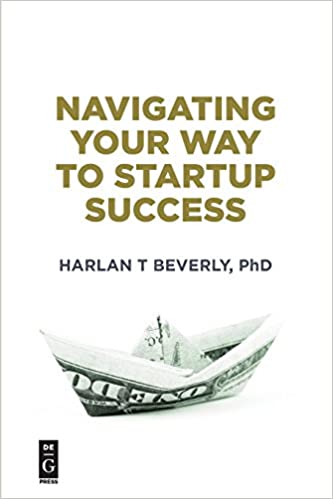 Many people think that the “culture”, “mission statement”, “values”, of a company is ‘corny’. We are often embarrassed by it, feeling it a kind of fake thing. If this is you, you may be in the wrong company. A strong company culture is absolutely the #1 most important thing for a businessman and especially a CEO to consider and stick to. For engineer-type minds, it sets a standard of measurement for the intangible. All our lives, we’ve been graded in two ways: factual ‘right’ answers (Objective) and ‘intangible’/feel answers (Subjective). All our lives, we engineer-types have failed (or not excelled) at the subjective. Culture should not be a corny thing to engineer-types, it should be thing #1. Most (if not all) of the engineers I’ve hired know this, and that’s a MAJOR reason the decide to work for (really with) me.
Many people think that the “culture”, “mission statement”, “values”, of a company is ‘corny’. We are often embarrassed by it, feeling it a kind of fake thing. If this is you, you may be in the wrong company. A strong company culture is absolutely the #1 most important thing for a businessman and especially a CEO to consider and stick to. For engineer-type minds, it sets a standard of measurement for the intangible. All our lives, we’ve been graded in two ways: factual ‘right’ answers (Objective) and ‘intangible’/feel answers (Subjective). All our lives, we engineer-types have failed (or not excelled) at the subjective. Culture should not be a corny thing to engineer-types, it should be thing #1. Most (if not all) of the engineers I’ve hired know this, and that’s a MAJOR reason the decide to work for (really with) me.
There are companies known for great corporate culture: National Instruments, Intel, and Google to name a few. People, myself included, seek out these companies and prefer to work at them. I spent many years at Intel blissfully unaware of my under-payment, because I was happy. I thrived in the culture that put a standard of measure on the subjective: and my performance ratings prove it.
More than just ratings and rankings though, a company culture sets forth a ‘norm’, a code of conduct, a code of honor, that permeates who you are as a company. In many companies that have “weak” corporate culture, this is not a good thing. Yes, they have “the mission statement and values” list like everyone else, but the measurement system is broken. Instead of ‘calling it’ when someone breaks the code or doesn’t live up to the corporate culture: it goes ignored if results are good. In fact, in most companies throughout the USA, results matter most of all (enter Enron). I believe, as do most Engineer-type minds, that the ends do not always justify the means: and that doing something ‘right’ and winning is better than doing it ‘wrong’ and winning bigger.
Culture should be used to select who you hire, who you fire, and how you measure success. In fact, when a company gets bogged down in ‘the hard stuff’ and can’t find its way, looking to culture there is always a way out. Culture can also seriously impact how others view you.
The Rich Dad’s Advisor: Building a Business Team that Wins is a practical guide to how to build, and more importantly how to enforce, a company culture.
For myself, I believe I have found the perfect company culture for both success and for my personal belief structure (an excellent match)… more on that on another post. In the mean-time here is Intel’s excellent corporate culture statements, which I can say generally speaking, was heavily enforced and rewarded in a very positive manner. (no I’m not re-joining Intel at this time, though I would work there again in a heartbeat for the right position).
Customer Orientation
We strive to listen and respond to our customers, suppliers, and stakeholders; clearly communicate mutual intentions and expectations; deliver innovative and competitive products and services; make it easy to work with us; and be a vendor of choice.
Discipline
We strive to conduct business with uncompromising integrity and professionalism; ensure a safe, clean, and injury-free workplace; make and meet commitments; properly plan, fund, and staff projects; and pay attention to detail.
Quality
We strive to achieve the highest standards of excellence; do the right things right; continuously learn, develop, and improve; and take pride in our work.
Risk Taking
We strive to foster innovation and creative thinking, embrace change and challenge the status quo, listen to all ideas and viewpoints, learn from our successes and mistakes, and encourage and reward informed risk taking.
Great Place to Work
We strive to be open and direct, promote a challenging work environment that develops our diverse workforce, work as a team with respect and trust for each other, win and have fun, recognize and reward accomplishments, manage performance fairly and firmly, and be an asset to our communities worldwide.
Results Orientation
We strive to set challenging and competitive goals, focus on output, assume responsibility, constructively confront and solve problems, and execute flawlessly.
photo credits:



